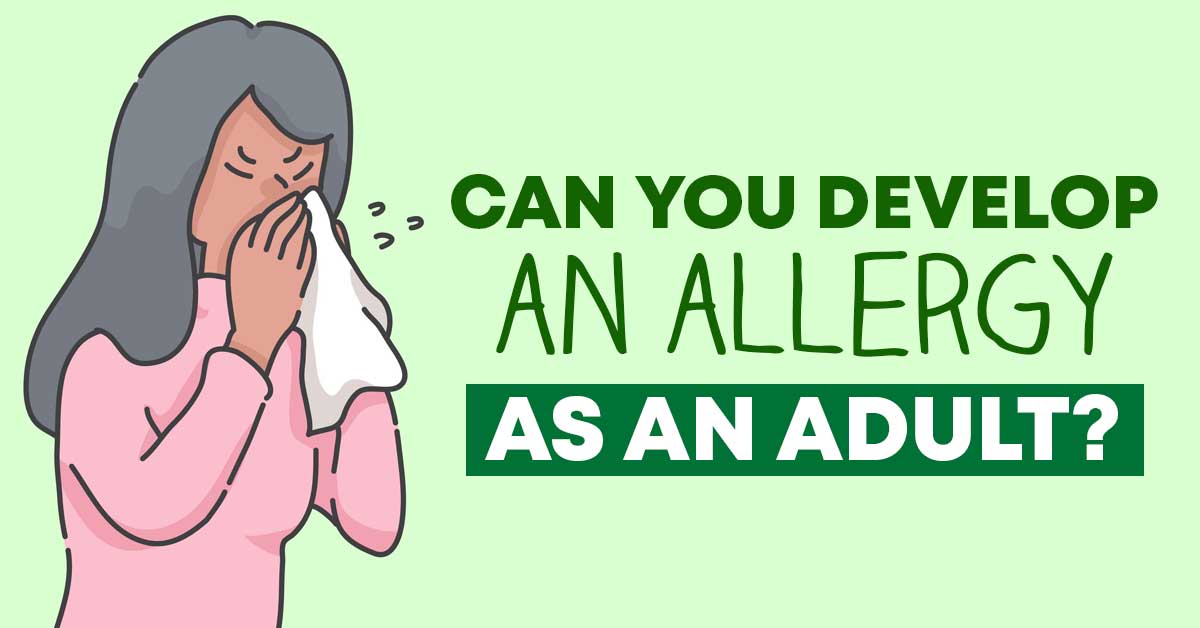Smells, foods, pets, or even seasonal changes can be a source of bothersome allergies for many individuals. Parents are able to identify these allergies in their children at a young age but in some circumstances, you may not identify an allergy till adulthood.
Often times this comes after a change of environment, trying new food, or just a shift in your tolerance for allergens over time.
On a positive note, the opposite can also happen. You may have avoided peanuts for many years after your initial allergic reactions, but could discover a decade later that the food you just mistakenly ate had peanuts in – but caused no reaction.
How our environment affects our allergies
Allergies are heavily influenced by the environment that we live in. For example, if you grew up in a house without a cat, or never ate shrimp during your childhood, you would not know if you were allergic to these things until the first time you are exposed to them.
Alternatively, you may have had a slight allergy (or intolerance) to cats even if you grew up in a household with cats, you may have never had a significant reaction. If you move to a new home (without a cat) and later return to see your cat, you may find you lost the tolerance you once had build, and now have a reaction to cats.
Even a broader change in environment, like moving to another town, can be a trigger for allergies.
Can new allergies develop?
Adult-onset allergies can start to occur for a wide array of reasons. For most people, allergies stop developing in their twenties or thirties, but it is possible for allergies to continue to show up much later in life.
It may not truly be a new allergy, but rather a shift in your tolerance, or the discovery of new food, scent, or experience that causes an unexpected allergic reaction. It is quite possible you always had this allergy, but never was aware.
What happens during an allergic reaction?
Allergies are the result of your body encountering a substance it thinks is harmful. While we know peanuts are not harmful to humans, about 3 million Americans have peanut allergies – meaning their bodies confuse peanuts as being harmful food.
When you experience an allergic reaction, your body produces antibodies to attach themselves to cells and trigger a release of a chemical called histamine. The purpose of histamine is to stimulate your body to release allergens. This causes inflammation, watery eyes, runny nose, itching, respiratory issues, and other common allergic reactions in an attempt to rid your body of the allergen.
How can I identify allergies before they become a problem?
An allergy test can be completed, at any age, to test if you would have an allergic reaction when exposed to a wide variety of substances. This test can be completed at Williams Integracare clinic.
By taking an allergy test, you will be able to identify allergens you may have never yet been exposed to. As a result, you will have the foresight to avoid these things if you come in contact with them at some point in your life. Additionally, it may bring to your attention exactly what the allergen is that causes you to have occasional unexpected sneezing.


